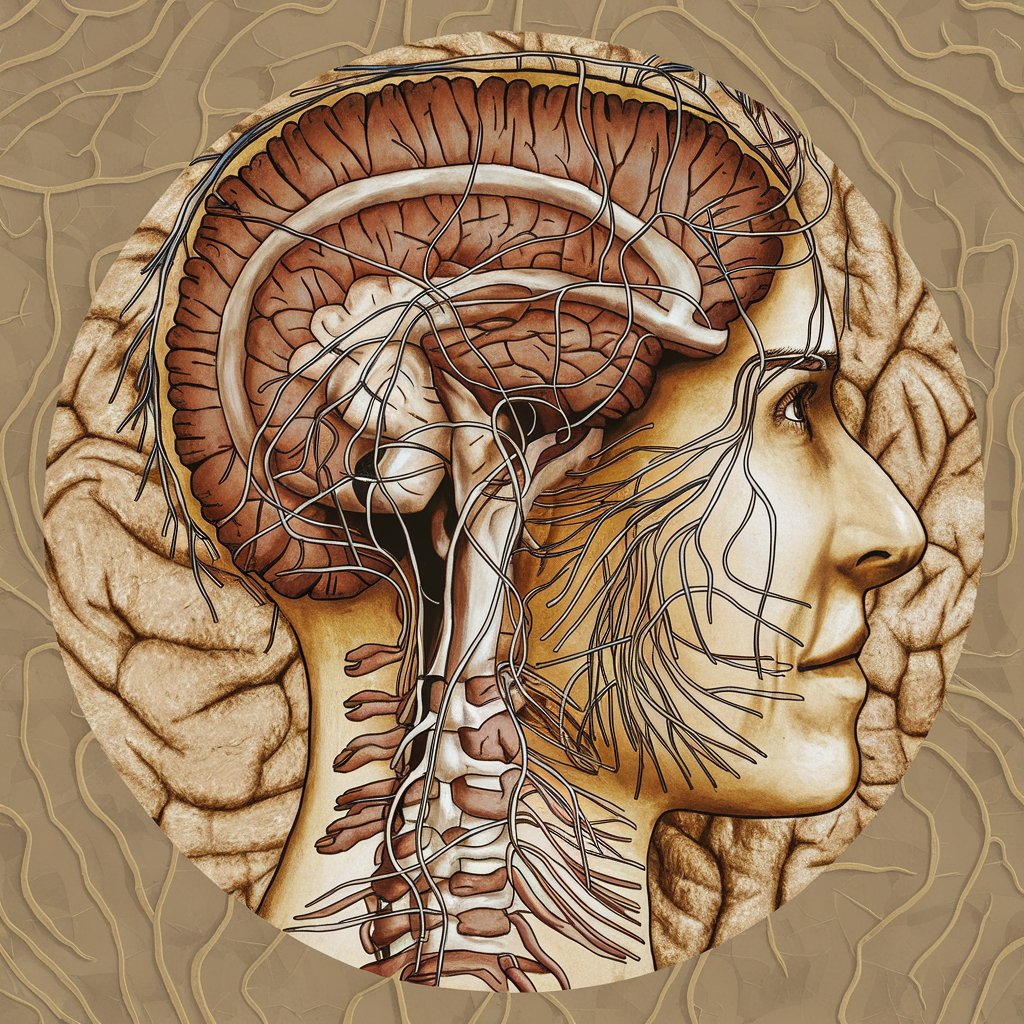
The nervous system, the intricate network that orchestrates our body’s functions, demands careful attention for best health. While modern medicine offers various interventions, natural approaches to boosting nervous system health have gained traction among health-conscious individuals.
From dietary choices to mindfulness practices, these methods promise to support and enhance our neurological well-being without pharmaceutical intervention. However, the efficacy of these natural strategies and their potential to complement conventional treatments raise intriguing questions. As we explore this topic further, we’ll uncover the science behind these approaches and their potential impact on our overall health and vigor.
Key Takeaways
• Consume foods rich in B vitamins, especially B12, to protect and maintain the myelin sheath for efficient nerve signaling.
• Incorporate dark chocolate, bananas, and leafy greens into your diet to support neurotransmitter production and nerve impulses.
• Practice yoga and stretching exercises to enhance nervous system function, reduce stress, and activate the parasympathetic nervous system.
• Manage stress through relaxation techniques and regular exercise to strengthen the peripheral nervous system and overall nerve health.
• Drink green tea to stimulate mood-enhancing neurotransmitters and support overall nervous system well-being.
Nourish Your Nerves
Proper nutrition plays a vital role in maintaining a healthy nervous system, with certain foods providing necessary nutrients that support nerve function and protection. A nutrient-rich diet is essential for ideal nerve health, focusing on foods that nourish and strengthen the nervous system.
Incorporate nerve-boosting foods into your daily routine to enhance neurotransmission and protect against degeneration. Dark chocolate, rich in tryptophan, aids in neurotransmitter production. Bananas, oranges, and pomegranates offer potassium, which regulates nerve impulses. Calcium, found in milk, leafy greens, and eggs, is crucial for nerve signaling. B vitamins, particularly B12, B1, B2, and B6, support impulse transmission and protect the myelin sheath. Sources include beef, poultry, eggs, and seafood.
Folate-rich foods like spinach and beets provide additional nerve protection. By strategically incorporating these powerful foods, you can strengthen your nervous system and maximize its performance.
Protective B Vitamins
Among the nutrients that support nervous system health, B vitamins stand out as powerful protectors, shielding nerves from damage and supporting ideal function. These essential vitamins play a pivotal role in maintaining the myelin sheath, a protective covering that insulates nerve fibers and guarantees efficient signal transmission.
B12, found abundantly in animal-based foods like beef, poultry, eggs, and seafood, is particularly crucial for nerve health. Folate, another key B vitamin, acts as a formidable defender of nerve cells. Rich sources include spinach, pomegranates, and beets.
Yoga and Stretching Benefits
Incorporating yoga and stretching into your daily routine can greatly enhance nervous system function and overall well-being. These practices offer powerful tools for maintaining a resilient and responsive nervous system.
Regular yoga and stretching sessions promote flexibility benefits that extend beyond physical suppleness, directly impacting neural pathways and stress responses. By engaging in mindful movement, practitioners strengthen the mind-body connection, fostering improved communication between the brain and peripheral nerves.
Research indicates that yoga and stretching techniques effectively reduce cortisol levels, the hormone associated with stress. This reduction aids in nervous system regulation, promoting a state of calm alertness. Additionally, controlled breathing exercises integral to yoga practice activate the parasympathetic nervous system, enhancing recovery and relaxation.
Lifestyle for Nerve Health
A comprehensive approach to lifestyle choices can greatly impact nervous system health and function. Diet choices play a key role in maintaining best nerve performance. Incorporating foods rich in B vitamins, such as beef, poultry, and seafood, helps protect the myelin sheath, while dark chocolate and potassium-rich fruits support neurotransmission. Leafy greens and dairy products provide essential calcium for regulating nerve impulses.
Effective stress management techniques are equally essential for nervous system well-being. Regular exercise strengthens the peripheral nervous system and reduces cortisol levels. Green tea consumption stimulates the production of mood-enhancing neurotransmitters like serotonin and dopamine, while its theanine content improves focus and cognitive function. Including herbal teas can further boost mood and mental clarity.
Seeking Professional Guidance
Recognizing when to seek professional medical guidance is crucial for maintaining peak nervous system health and addressing potential issues before they escalate. While natural approaches can support nerve health, certain symptoms warrant expert evaluation.
Consider consulting a neurologist or specialist if you experience:
- Persistent numbness or tingling in extremities
- Unexplained weakness or muscle atrophy
- Chronic pain or headaches
- Difficulty with balance or coordination
- Changes in cognitive function or memory
Professional advice can provide targeted nerve support and early intervention for potential neurological conditions. A qualified healthcare provider can conduct thorough examinations, order necessary tests, and develop personalized treatment plans. They may also recommend advanced therapies or lifestyle modifications to optimize nervous system function.
Conclusion
A complete approach to nervous system health intertwines nutrition and lifestyle choices. While nutrient-rich foods fortify neural pathways, yoga and stretching enhance mind-body connectivity.
Protective B vitamins juxtapose with stress management techniques, creating a synergistic effect on overall well-being. Evidence-based practices, coupled with preventative measures, form the cornerstone of best nerve function.
Seeking professional guidance complements self-care efforts, ensuring a thorough strategy for maintaining and boosting nervous system essentiality in the long term.